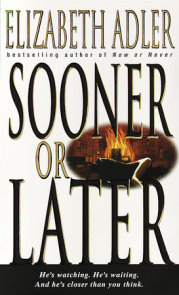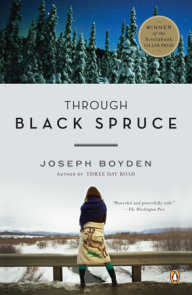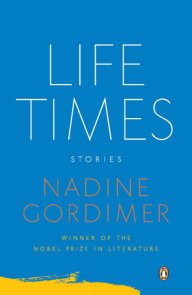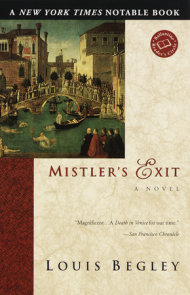READERS GUIDE
“Olafsson, a tremendous talent, has written an unforgettable novel.” —The Boston GlobeThe questions and discussion topics that follow are designed to enhance your group’s reading of Olaf Olafsson’s Walking into the Night, a heartbreakingly beautiful novel of love and loss.
Introduction
Christian Benediktsson has led a quiet life as William Randolph Hearst’s butler for twenty years. No one knows his past, that he was once a husband, father, businessman, lover. His days are filled with the rituals of caring for a grand house and a demanding boss, but it is in his most private thoughts and memories that we learn of the wife and children he abandoned in Iceland, his reckless affair with a glamorous New York actress and his financial downfall, all of which led to his retreat years ago. In this rich and deeply moving novel, Olafsson has created a stunning portrait of a man wrestling with guilt and secret passions, but who ultimately cannot allow the past to reenter his life.Questions and Topics for Discussion
1. Rather than simply following Christian’s life chronologically, Walking into the Night is written in the third person narrative and interspersed with flashbacks told through personal letters. How does this point of view affect the reader’s perception of the story? Why doesn’t Christian ever send the letters?
2. What is the function of Elisabet ’s occasional narration? Does her perspective change your view on anything—Christian, Elisabet herself, or the situation? How does hearing her side of the story affect the reader?
3. Geography plays a crucial part of Walking into the Night, whether it is a small fishing village in Iceland, the capital Reykjavik, New York City, or the Southern California estate of San Simeon. Describe each place and its importance and role in the context of the entire novel. What are the symbolic differences? How do the various places affect Christian? Does he transform as he travels from place to place? Where is he most comfortable and content?
4. The story takes place in Europe and America in the 1920s and 30s, before and after the Great Depression and between the wars. How does the time period affect the story and the characters? Could Christian’s life experiences happen in the late 1990s and at present, or are they particular to a certain age?
5. Discuss the master/servant relationship between Hearst and Christian. Compare and contrast the two men. Is one a foil to the other? How do the two men change or grow over the course of the novel? Does Christian’s sense of self change because of his subservient relationship with Hearst?
6. What does Christian represent? What is the significance of his name? Is he a sympathetic character? An everyman? A hero?
7. Birds are a recurring motif throughout Walking into the Night. What are the various types of birds that appear in the novel? What do they symbolize, and what is their significance to the protagonist and to the novel? Why is the final sentence of the novel about a bird?
8. Of one early photograph of himself, Christian says, “Somewhere behind the dignified expression in the photograph . . . lurked a flaw that could ruin everything” [p. 123]. How do photographs expose Christian? What is the importance of photographs in the novel?
9. The theme of betrayal is prominent in Walking into the Night. What types of betrayal occur? What are the causes and consequences of them? Are the betrayals justified? Is anyone innocent? Does guilt play a role or haunt any of the characters?
10. What kinds of captivity and freedom does the author explore in Walking into the Night? Is Christian free? If not, what stifles or prevents him from being free? Other people, circumstances, his own personality traits? Is Hearst, one of the richest men in America, free?
11. How has Christian’s rural Icelandic upbringing, community, and his family’s poverty affected his personality and desires? What does he want from life, and what compromises has he made?
12. What sorts of relationships does Christian have with the three women in his life–Elisabet, Klara, and Marion Davies? What binds Christian to each woman? How and why does each woman need and depend on Christian? How do the individual women impact Christian and his decisions?
13. What are Christian’s ideas of familial and romantic love? Do his definitions of family and love evolve? What determines and/or undermines his attachments to the women in his life? If you’ve read Olafsson’s earlier fiction, how do Christian’s romantic and familial relationships compare or contrast with those in The Journey Home or Absolution?
14. Early in the novel, Christian writes, “I never gave myself time to let my thoughts wander. I knew that if I did, the memories would flood over me” [p. 22]. And later, “The nights are the hardest, when silence surrounds me and there’s nothing to deflect the memories” [p. 24]. Why doesn’t he want to confront his memories? Are his unsent letters to Elisabet a way of remembering, accepting, apologizing for, or controlling the past?
15. Do you trust the memories that are relayed through Christian’s letters? Does he? He describes his memoirs/letters as an explanation to Elisabet–“I haven’t forgotten my promise to try to explain what happened” [p. 11]. Does the reader accept this even though Christian never sends the letters to her? Why or why not?
16. Discuss the significance of the title and the ending. Why does the novel conclude this way? What do you think is in the future for Christian?




















